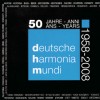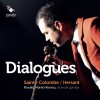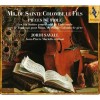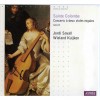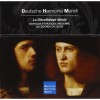传记
Monsieur de Sainte-Colombe (ca. 1640–1700) was a French composer and violist.
It is speculated by various scholars that Monsieur de Sainte-Colombe was of Lyonnais or Burgundian petty nobility; and also the selfsame 'Jean de Sainte-Colombe' noted as the father of 'Monsieur de Saint Colombe le fils'. This assumption was erroneous, according to subsequent research in Paris by American bass viol player and musicologist Jonathan Dunford. Dunford suggests he was probably from the Pau area in southernmost France and a Protestant, that his first name was "Jean" and that he had two daughters named Brigide and Françoise.
Sainte-Colombe was a celebrated master of the viola da gamba; it is said that he added the seventh string (AA) on the bass viol.
A recluse, he is claimed to have performed publicly only occasionally at his home, in consort with his two daughters, whom he had trained. Aside from them, Sainte-Colombe's students included the Sieur de Danoville, Jean Desfontaines, Pierre Méliton, Jean Rousseau and notably Marin Marais, who wrote Tombeau pour Monsieur de Sainte-Colombe, in 1701, as a memorial to his instructor.
Amongst the extant works of Sainte-Colombe are sixty-seven Concerts à deux violes esgales, and over 170 pieces for solo seven-string viol, making him perhaps the most prolific French viol composer before Marin Marais.
In 1991, Pascal Quignard published a novel giving a conjectural picture of the relationship between M. de Sainte-Colombe and Marin Marais, entitled Tous les matins du monde (All the World's Mornings). Alain Corneau directed a film based on it, with Jean-Pierre Marielle as Sainte-Colombe, Guillaume Depardieu as the young and Gérard Depardieu as the aged Marin Marais. The soundtrack of the film was realized by Jordi Savall.
A quotation from a composition of Monsieur de Sainte-Colombe is used in Carlo Forlivesi's Requiem (1999).







